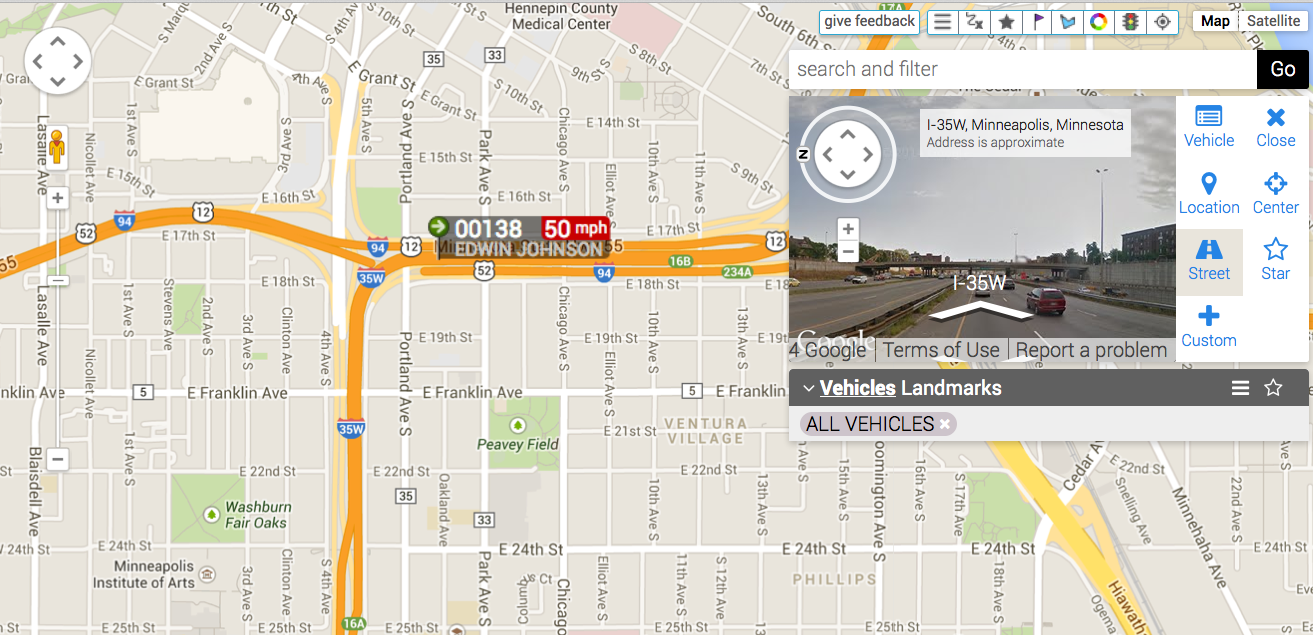There are many ways that advanced GPS tracking solutions can help to improve your oil & gas fleet’s operations. Quickly confirm the locations of vehicles and assets, gain access to large amounts of data on demand, help start a green initiative fleet-wide, and more.
If you are considering implementing a GPS fleet tracking solution, this blog will show you some of the ways that fleets in the oil & gas industry are currently using GPS tracking technology.
Remote Real-Time Monitoring
Monitor fleet activity any place, any time. Knowing what is happening with your fleet in real-time is important to staying on top of fleet operations. With an advanced solution you have the ability to access fleet activity in several ways, view maps that are updated automatically, and communicate with users/drivers for dispatching and messaging purposes.
Some oil & gas companies operate in remote areas where coverage becomes an issue. With advanced GPS tracking solutions, you can mix and match cellular carriers so that you can develop the best coverage strategy. In cases where there is no cellular coverage at all, GPS tracking devices “store forward”. When the vehicle or asset goes out of coverage, the satellites continue to track it and collect data. Once it goes back into cell coverage, all of the data is pushed to the GPS tracking provider’s servers for seamless reporting as if they never lost coverage.
Real-time location intelligence also allows you to quickly verify the locations of vehicles and non-powered assets to protect your fleet against theft. It is common for non-powered assets such as generators, pumps, and excavators to be targeted. Without GPS tracking, it can be almost impossible to locate and recover stolen property. Protect your fleet from theft with a GPS tracking solution.
GPS Tracking Integration
Integration is incredibly important to fleet operations, and it is important to look for a GPS tracking provider that has a number of methodologies in which integration may take place. For example, GIS overlays may be beneficial for your fleet to view vehicle location data in a geographical information system (GIS), or to pull GIS data into a GPS tracking solution’s map. View both your vehicles’ current locations and work locations, like oil rigs or well sites, from one platform. This is beneficial to make sure that the closest and best vehicle with the right equipment is dispatched. In a good system, integration should be able to go in both directions.
Other types of GPS tracking integration include:
- APIs
- Data Connect
- Data Dump
Help your Fleet be Greener
Corporate environmental responsibility is becoming a hot button for the oil & gas industry. It is not only important to implement a green initiative for you fleet, but to monitor and report on your efforts. Advanced GPS tracking solutions allows you to report, study, and document CO2 emissions, which will allow you to communicate your company’s progress overtime to shareholders and customers.
There are many other ways that GPS fleet tracking can benefit your oil & gas business. Contact us today to learn more about how your fleet can use GPS tracking technology!






